It’s heartbreaking to see a dog begin to lose his or her range of motion. Without the use of their limbs, our furry friends miss out on long walks, games of fetch, and other fun activities. But it doesn’t have to be that way! Mobility aids like handheld slings and canine wheelchairs can put the pep back in your pup’s step, improving quality of life and even increasing the number of years you get to spend with your dog.
With so many canine mobility aids available, how do you decide which one is right for your pet? A number of factors come into play here, such as your dog’s physical condition, medical needs, and overall temperament. We’ve broken down the benefits and intended uses of both dog wheelchairs and handheld slings so that you can make an educated decision when choosing between the two.
Dog Wheelchairs
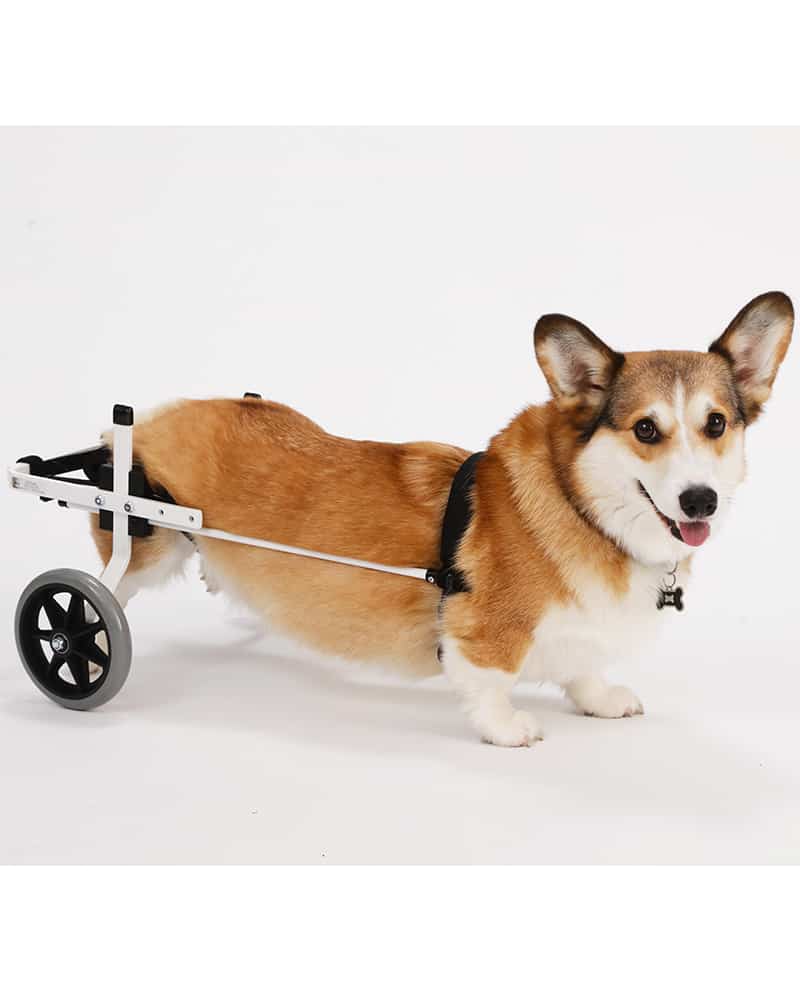
Solving a mobility issue isn’t as simple as ordering a generic wheelchair. The process takes some careful evaluating and planning on your part, not to mention designing and crafting the cart itself.
Your dog’s specific diagnosis can clarify whether or not she needs a wheelchair. Here are some conditions and issues that make your canine a good candidate for a cart:
- Advanced degenerative myelopathy
- Ruptured or herniated disc
- Spinal trauma
- Front amputee
- Cerebellum hyperplasia
- Cervical disc disease
- Post-surgical rehabilitation for disk, knee, and hip operations
There are two general styles of pet wheelchair: rear support and full support. To determine which type of cart will work best, consider your pet’s current health status. The rear support option is ideal for dogs with strong front legs and weak or paralyzed back legs. Dogs experiencing weakness in both the front and back legs typically require a full support wheelchair. Don’t worry about size as a deciding factor here—because all breeds of dogs can experience paralysis and other mobility issues, K9 Carts creates custom full and rear support wheelchairs that can accommodate animals from under 5 pounds to over 115 pounds. Even better, each of our carts can be adjusted to provide more or less support as your dog’s needs change.
The towel test is a simple way to help determine what kind of support your pet needs. Simply cut two leg holes in an old hand towel, put your small dog’s legs through the holes, and see if your pet can walk normally on his front legs with his back held in a level position. For bigger dogs, use a towel under each hind leg. If your pup is able to walk strongly, a rear support wheelchair can give him the back support he needs. But if you notice him showing signs of forelimb weakness like stumbling or taking short, choppy steps, a full support wheelchair is a better option.
Handheld Slings
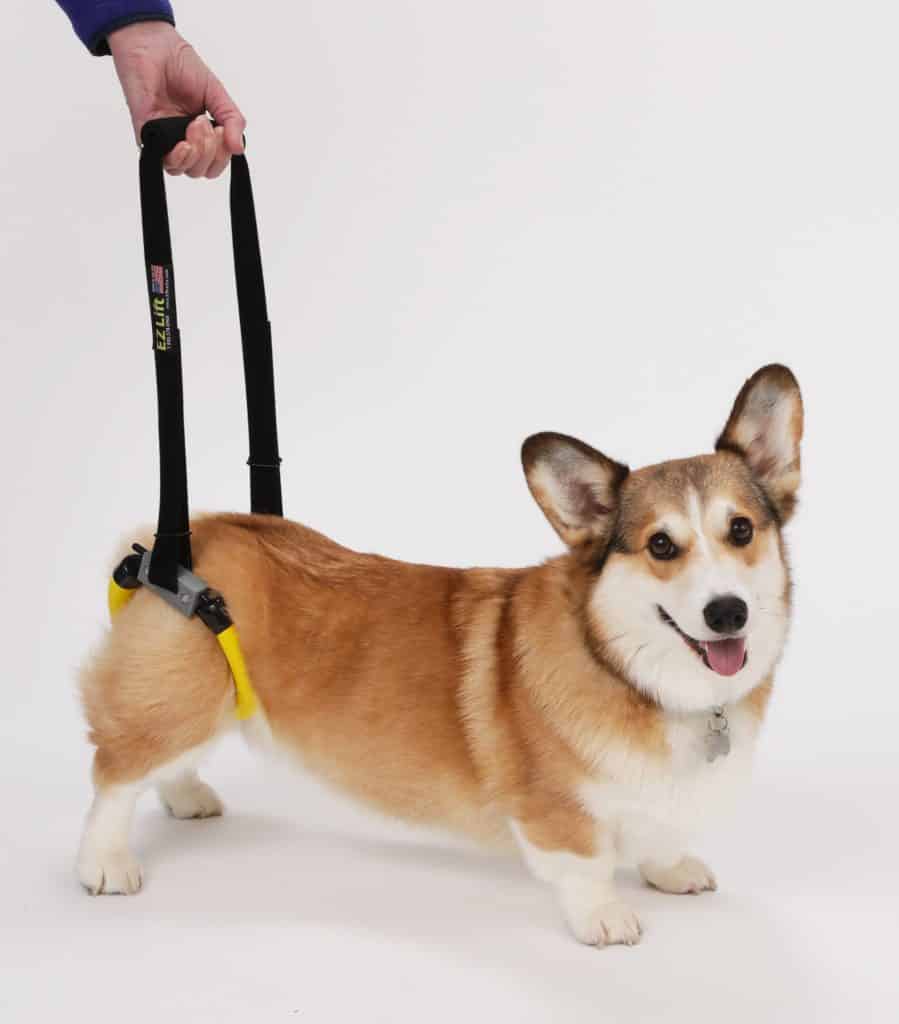
Conditions such as forelimb weakness or hip dysplasia in dogs necessitate a little extra help now and then. A harness or handheld sling is generally used as a temporary measure for dogs who need a walking aid. Ideal for canines recovering from surgery or injury, handheld slings can be as much of a boon to you as they are to your canine. Instead of straining your back heaving him up into your arms, these harnesses allow you to give your pup a hand getting into or out of the car, as well as going up and down stairs.
K9 Carts offers multiple harness options—from rear slings to full support harnesses—designed to fit a range of needs. Your dog may benefit from the use of a handheld sling if she experiences any of these issues or needs:
- Weak limbs
- Post-surgical rehabilitation
- Front limb amputee
- Front limb disability or weakness
- Arthritis
- Hip dysplasia
- Spinal traumas
- Athletic injuries
- General fatigue
- Old age
Choosing the Best Mobility Aid
Some mobility issues can be managed by either a dog wheelchair or harness. If your dog has a condition, such as spinal trauma, that can be mitigated by the use of either option, your decision should come down to her individual needs and overall well-being. If she clearly still has a desire to be active, your pup needs a rear or full support wheelchair. But if she just needs some help getting up now and then, a handheld sling will better meet both your and her needs. Whichever you choose, remember to keep your ultimate goal in mind: restoring a measure of mobility so that your dog can enjoy an increased quality of life by your side.
Give Dogs the Support They Need with K9 Carts
There are quite a few different pet wheelchairs and animal harnesses out there, but your pup deserves the highest-quality mobility aid possible. K9 Carts is proud to provide the only fully adjustable, convertible dog wheelchair designed by orthopedic veterinarians. Our team of experts will design and build your cart on the same day, providing you with a sturdy solution to your dog’s mobility issues. Still deciding between a cart and a handheld sling? Give us a call today—our experts are happy to answer any questions and help you choose the mobility aid that best fits your pet’s individual needs.


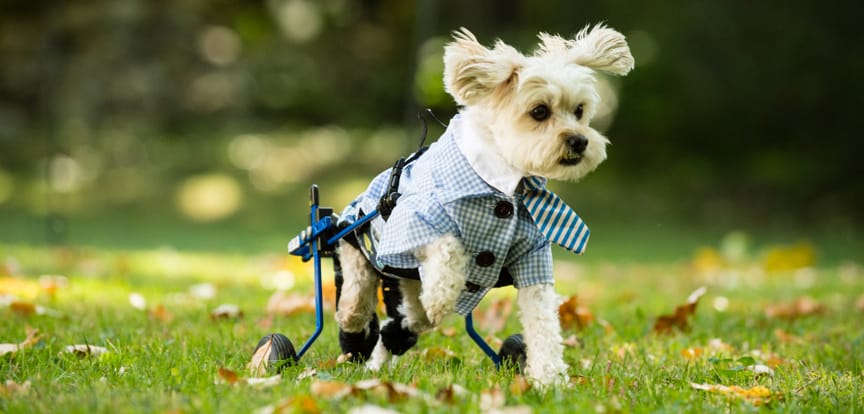

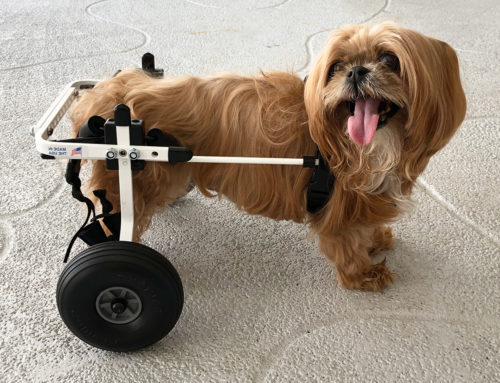
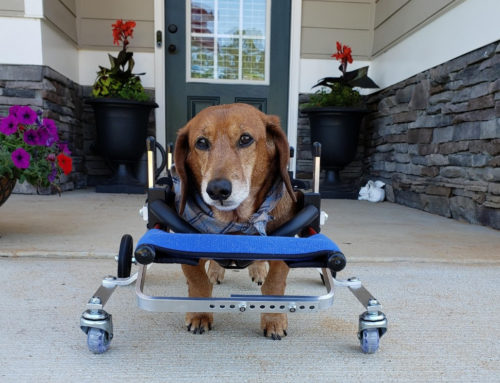
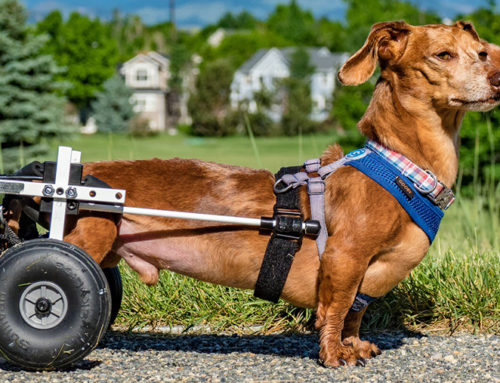

Leave A Comment